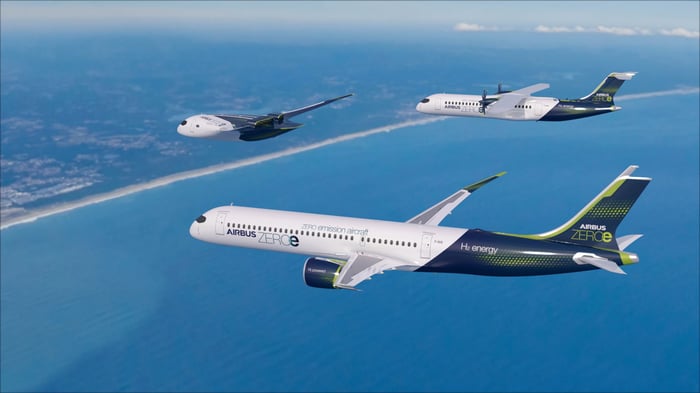Airbus (EADSY -0.19%) is working on hybrid-electric propulsion systems for airplanes, putting pressure on archrival Boeing (BA 0.28%) to up its investment in technologies that can help reduce the aviation industry's carbon footprint over time.
The European aerospace giant disclosed the work as part of its Scope 3 report, an attempt to document the emissions generated by its products over their lifetimes. Airbus said the 1,429 planes it delivered in the last two years were likely to emit more than 1 billion tonnes of carbon dioxide during their service lives, highlighting the importance of aviation in any effort to reduce emissions.

Rendering of Airbus' hydrogen prototypes. Source: Airbus.
Aviation accounts for about 2.5% of global carbon dioxide emissions, according to University of Oxford statistics, and that is expected to increase in the decades to come as demand for travel grows in the developing world.
Airbus last fall unveiled designs for a zero-emission hydrogen plane, and said in the report it is working on a number of other technologies as well, including an electric hybrid propulsion system. While hydrogen would be the ideal solution, since the only by-product is water, it seems unlikely the technology will advance fast enough to power large planes in the near future.
Hybrids could be at least a stop-gap measure that could reduce emissions while other technologies mature, with hybrid planes potentially entering service in the next decade.
Boeing is also experimenting with advanced propulsion systems, including via investments in start-ups, but the company has focused much of its near-term efforts on ways to make existing propulsion systems more fuel efficient. That's likely to change in the years to come should Airbus show progress on hybrids.





